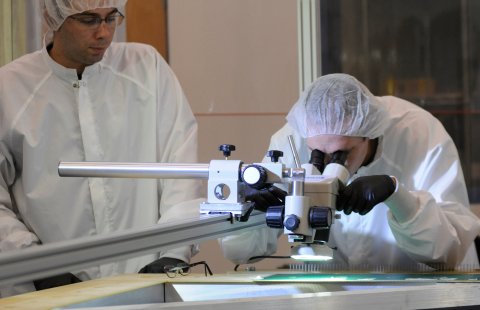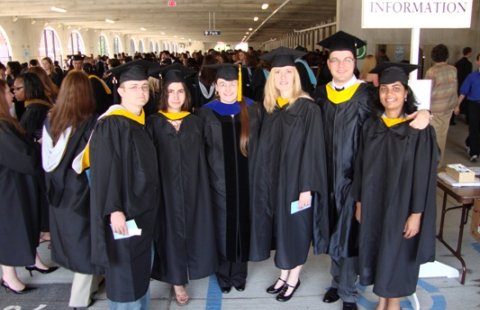$26,500
Average Incoming Level Of Graduate Support
Nearly all students admitted to full-time graduate study within the physics department receive full financial support during the time of their graduate study.
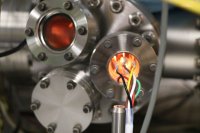
The Department of Physics offers graduate programs leading to the degree of Doctor of Philosophy (Ph.D.) in Physics and the Master of Science (M.S.) in Physics. For the Ph.D. Degree an endorsement in Applied Physics is also offered. The doctoral and masters program provides broad curricular instruction in classical and modern physics. The Ph.D. Degree further requires intensive training in one of several specialty areas of the Physics Department faculty. Employment opportunities for graduates have been found in industry, government laboratories, and academia.
Applicants for admission to graduate study are required to have an earned bachelor's degree in physics, or a closely related discipline, from an accredited institution or an equivalent degree from a foreign institution. The applicant is normally required to have a minimum grade point average of 3.0 on a 4.0 scale. In addition, the general tests of the Graduate Record Examination (GRE) are encouraged but not required.
* Learn more about english proficiency requirements for non-native speakers of english
Admission decisions are based on undergraduate achievement, GRE scores, and personal reference letters. Graduate study may commence at the beginning of any academic term; decisions for fall term admission are normally made by April 15. It is therefore important to have your completed application in our hands by January 15 as financial aid is limited. If you wish to apply after this date, please contact us concerning the availability of support. Visit Graduate Admissions below for more information.
Nearly all students admitted to full-time graduate study within the Physics Department receive full financial support during the time of their graduate study. For incoming students, support is normally in the form of teaching assistantships or fellowships, while more advanced students usually obtain research assistantships or special competitive fellowships. All full-time graduate students also receive waiver of tuition for courses required in connection with their graduate study. The level of graduate support begins at $26,500 per annum This includes support for research during the summer semester.
Applicants for admission to graduate study are required to have an earned bachelor's degree in physics, or a closely related discipline, from an accredited institution or an equivalent degree from a foreign institution. The applicant is normally required to have a minimum grade point average of 3.0 on a 4.0 scale. In addition, the general tests of the Graduate Record Examination (GRE) are encouraged but not required.
* Learn more about english proficiency requirements for non-native speakers of english
Admission decisions are based on undergraduate achievement, GRE scores, and personal reference letters. Graduate study may commence at the beginning of any academic term; decisions for fall term admission are normally made by April 15. It is therefore important to have your completed application in our hands by January 15 as financial aid is limited. If you wish to apply after this date, please contact us concerning the availability of support. Visit Graduate Admissions below for more information.
Nearly all students admitted to full-time graduate study within the Physics Department receive full financial support during the time of their graduate study. For incoming students, support is normally in the form of teaching assistantships or fellowships, while more advanced students usually obtain research assistantships or special competitive fellowships. All full-time graduate students also receive waiver of tuition for courses required in connection with their graduate study. The level of graduate support begins at $26,500 per annum This includes support for research during the summer semester.
Master of Science in Physics (M.S.)
The Department of Physics offers graduate programs leading to the degree of Doctor of Philosophy (Ph.D.) in Physics and the Master of Science (M.S.) in Physics. Many obtaining the M.S. Degree in Physics also work in industrial settings, in teaching, and in federal laboratories.
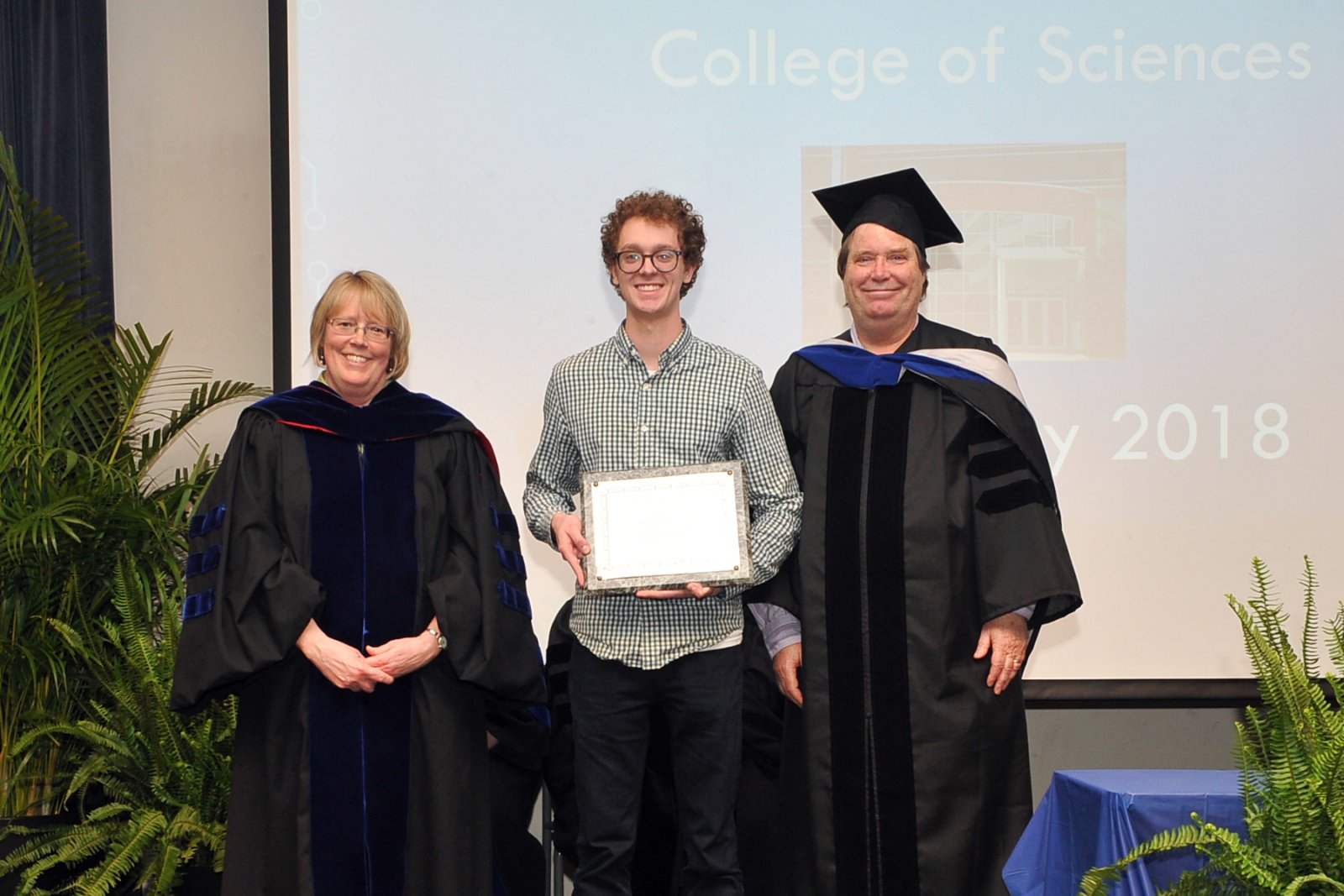
Doctor of Philosophy in Physics (Ph.D.)
Our Ph.D. program provides students with opportunities to perform research in some of the most current and dynamic areas of physics. In the first two years, students develop a solid and broad base of physics knowledge through the core curriculum, departmental colloquia, and research training. Armed with the core knowledge, doctoral students join a research group working in an area of particular interest. This research is performed in very close collaboration with one or more faculty whose interests span a wide range of physics fields.
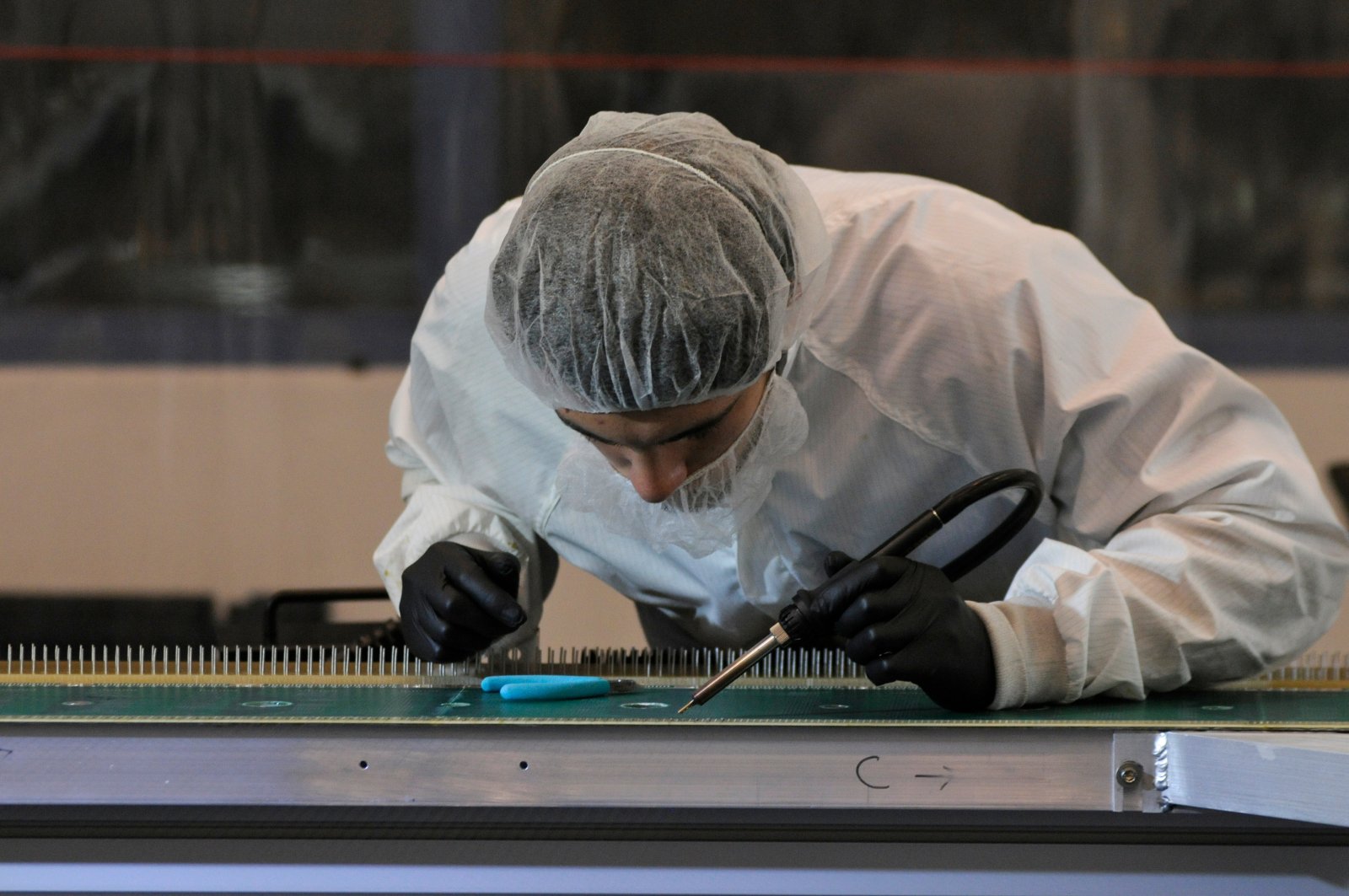
Graduate Admissions Faculty



